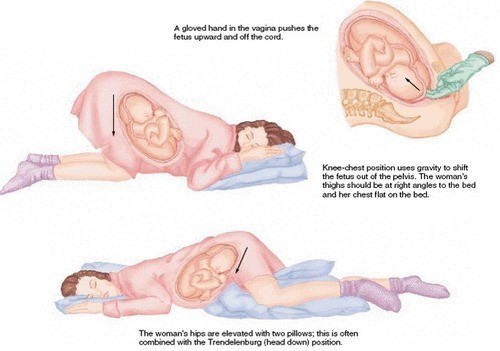A cesarean section would be most appropriate for which of the following clients?
History of cesarean section for fetal distress.
Fear of natural childbirth.
Current pregnancy is complicated by gestational diabetes.
History of cephalopelvic disproportion with first pregnancy.
The Correct Answer is A
A history of cesarean section for fetal distress is an indication for a repeat cesarean section in subsequent pregnancies, as the risk of recurrence of fetal distress is higher. A trial of labor after cesarean (TOLAC) may be attempted in some cases, but a planned cesarean section is often recommended.
Option B is incorrect because fear of natural childbirth is not a medical indication for a cesarean section.
Option C is incorrect because gestational diabetes does not typically require a cesarean section unless other complications arise, such as fetal macrosomia or failed induction of labor.
Option D is incorrect because a history of cephalopelvic disproportion with the first pregnancy may not necessarily require a cesarean section in subsequent pregnancies. A trial of labor may be attempted, depending on the circumstances.
Nursing Test Bank
Naxlex Comprehensive Predictor Exams
Related Questions
Correct Answer is B
Explanation
In DIC, there is widespread clotting that can lead to depletion of clotting factors and platelets, resulting in bleeding. The priority in the care of DIC is to correct the underlying cause and to replace lost blood products to prevent hypovolemia and hemorrhage. Therefore, the nurse should anticipate an order for the administration of blood products such as packed red blood cells, fresh frozen plasma, and platelets. Administration of steroids may also be ordered to reduce inflammation and stabilize cell membranes. Restriction of intravascular fluids may be necessary to prevent further bleeding, but it is not the first priority. Invasive hemodynamic monitoring may be used to assess the client's fluid and electrolyte status, but it is not typically the first intervention.
Correct Answer is A
Explanation
In the case of a prolapsed umbilical cord, the first priority intervention is to relieve pressure on the cord. Placing the woman in the knee-chest position or Trendelenburg position with the hips elevated is the best way to achieve this. This position helps to reduce the compression of the cord and improve fetal oxygenation.
Option B is incorrect because while oxygen may be necessary, relieving pressure on the cord is the priority.
Option C is incorrect because a vaginal birth should not proceed with a prolapsed umbilical cord, as it can cause cord compression and fetal distress.
Option D is incorrect because covering the cord in sterile gauze soaked in saline is not a priority intervention and may not be effective in relieving pressure on the cord.

Whether you are a student looking to ace your exams or a practicing nurse seeking to enhance your expertise , our nursing education contents will empower you with the confidence and competence to make a difference in the lives of patients and become a respected leader in the healthcare field.
Visit Naxlex, invest in your future and unlock endless possibilities with our unparalleled nursing education contents today
Report Wrong Answer on the Current Question
Do you disagree with the answer? If yes, what is your expected answer? Explain.
Kindly be descriptive with the issue you are facing.
